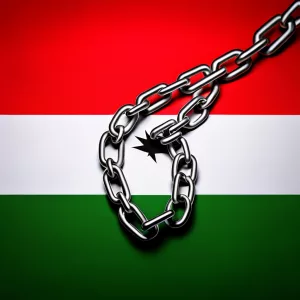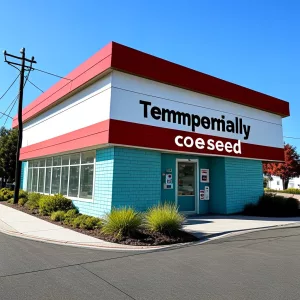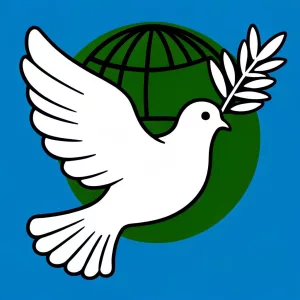South Africa’s recent changes to its Refugees Act have stirred up strong feelings and worries. Asylum seekers now have to go through ‘filtering’ interviews, which some fear could lead to unfair deportations and harm their rights. Critics, including groups like the Scalabrini Centre, argue that these rules could put vulnerable people in danger and make it harder for them to get the help they need. As the courts consider the situation, everyone is watching closely, hoping for a decision that protects human rights and treats those seeking safety with compassion.
South Africa is undergoing a tough energy crisis, with frequent power cuts known as load shedding. Key issues include the shutdown of important coal power stations, problems with the aging energy infrastructure, and a heavy reliance on a single energy company, Eskom. Political parties are voicing their frustration, demanding better management and more competition in the energy sector. As the country grapples with these challenges, the future of its energy supply hangs in the balance, requiring innovative solutions and teamwork. The journey to a stable energy future is not just about power; it’s a fight for hope and progress for all South Africans.
Kabelo Gwamanda’s political journey is a rollercoaster filled with excitement and trouble. Once a rising star in Johannesburg’s politics, he faced serious accusations of financial misconduct tied to a fake funeral policy scheme that tricked local residents. As investigations heated up, Gwamanda was kicked off the mayoral committee and arrested, but later the charges were pulled back by the National Prosecuting Authority. Despite these challenges, he remains determined to fight back, showing the tough spirit of politicians who must navigate a world full of ups and downs.
In early 2025, South African soldiers faced a fierce conflict in the Democratic Republic of the Congo, leading to the heartbreaking loss of 14 soldiers. This tragedy shook their families and highlighted the dangers of peacekeeping missions in such volatile areas. However, hope emerged when the South African National Defence Force successfully evacuated critically injured soldiers, showing their dedication to caring for their own. This operation not only brought the wounded home but also reflected the soldiers’ bravery and the ongoing struggle for peace in a troubled region. Their stories remind us of the human cost of war and the resilience needed to pursue a better future.
The South African Department of Home Affairs has launched a helpful program to fix mistakes in citizens’ ID documents for free. If you find an error, like a wrong name or birthdate, you can fill out special forms and provide your birth certificate to get it corrected. This friendly approach makes it easier for people to live their lives without unnecessary problems caused by clerical mistakes. By removing costs and simplifying the process, the department shows it cares about the rights and identities of all South Africans, helping everyone feel recognized and valued.
Ernst Roets has decided to leave the Solidarity Movement and AfriForum after twenty years of work. He wants to explore new opportunities and make a positive impact in his community. His departure comes at a challenging time for AfriForum, which has faced criticism over its views on land reform and misinformation. Roets has been a key voice in South Africa’s discussions on rights and identity, and while his next steps are unknown, his influence will continue to shape the country’s political landscape.
South Africa’s roads are dangerous, with many accidents caused by human mistakes like reckless driving and speeding. In the 2024/25 festive season alone, over 1,500 lives were lost, highlighting the urgent need for better laws and education about road safety. Problems like unfinished road projects and inconsistent licensing make the situation worse, putting everyone at risk. To change this, the country must work together to improve laws, teach kids about safe driving, and use technology to prevent accidents. With strong commitment and teamwork, South Africa can transform its roads from danger zones into safe paths for everyone.
Elon Musk recently called Cape Town a “beautiful theme park,” highlighting its appeal and safety for tourists. His comments sparked a lively conversation about the city’s charm and the importance of safety for visitors. In response, Cape Town’s mayor, Geordin HillLewis, proudly showcased the city’s beauty and vibrant community, inviting Musk to experience it firsthand. He also shared plans to boost safety and encourage tourism as key to the local economy, painting a picture of Cape Town as a lively and resilient place, full of culture and heart.
PEPFAR, the US President’s Emergency Plan for AIDS Relief, is a crucial program that started in 2003 to fight the AIDS epidemic, especially in Africa. It has provided lifesaving treatments and education, saving many lives over the years. However, recent funding disruptions have put this success at risk, causing many health centers in South Africa to close or reduce services. These challenges threaten not only individual health but also the progress made against HIV, showing how important it is to keep global health efforts strong and steady.
South Africa is stepping up as a key player in global peace efforts. President Cyril Ramaphosa invited Ukrainian President Zelenskyy to visit, showing South Africa’s strong commitment to resolving conflicts through conversation. This invitation not only strengthens ties between South Africa and Ukraine, but also highlights the country’s desire to promote peace and cooperation around the world. Rooted in its own history of overcoming division, South Africa aims to be a voice for the Global South and a mediator in international disputes. As it navigates challenges and opportunities, South Africa is determined to leave a positive mark on the world stage.
The Western Cape High Court made a powerful decision to cancel Grantland Bray’s will, which wanted to give money to the Boerelegioen, a group linked to racial hate. This ruling stands up for South Africa’s values of justice and equality, making it clear that the law won’t support groups that spread division and fear. Judge Rosheni Allie’s ruling shows how important it is to protect the nation’s commitment to a peaceful and inclusive society. This decision reminds everyone that South Africa must keep fighting against the shadows of its past while aiming for a brighter future.
In Wallacedene, South Africa, the community is fighting hard for equal education. At Solomon Mahlangu Primary School, students face crumbling buildings, no playgrounds, and missing resources, while nearby Blue Ridge Primary has everything they need. Parents organized a powerful protest, moving desks to show their demand for better conditions for their kids. This struggle highlights deeprooted inequalities in South Africa’s education system and the community’s determination to secure a brighter future for their children. The events in Wallacedene reflect a larger battle for fairness and justice in education, making their fight a symbol of hope for many.
Cape Town is a sweet lover’s paradise filled with delicious treats! Start your journey at Unframed Ice Cream, where you can taste exciting flavors like vegan chocolate and burnt white chocolate. Next, visit Jason Bakery for its famous “doughssant,” a delightful mix of croissant and doughnut. Don’t forget The Dairy Den for nostalgic soft serve and freak shakes, or Charly’s Bakery for colorful cupcakes that tell a story. Finally, wrap up your adventure at Coco Safar, where luxury desserts and unique coffee await. Every stop is a tasty celebration in this beautiful city!
Cape Town is a dessert lover’s dream, filled with sweet spots that burst with flavor and creativity. From the bold, unique ice creams at Unframed Ice Cream to the flaky pastries at Jason Bakery, there’s a treat for every craving. The Ice Café brings back childhood memories with nostalgic flavors, while Charly’s Bakery dazzles with colorful cakes and joyful vibes. With each delicious bite, Cape Town’s dessert scene invites you to explore a world where tradition meets innovation, making every visit a delightful adventure!
South Africa’s National Budget is a big deal because it shows how the government plans to spend money to help the country face economic problems. On February 19, 2025, Finance Minister Enoch Godongwana will share important details about this budget at a special event. This budget will focus on boosting the economy and helping those in need, especially with challenges like unemployment. It’s more than just numbers; it’s about making decisions that affect everyone’s lives in South Africa.
Cape Town is on an exciting journey to improve how people move around the city with the MyCiTi bus service. By March 2025, this service will connect neighborhoods like Khayelitsha and Mitchells Plain to important areas like Wynberg and Claremont, making travel easier for everyone. The project not only speeds up commutes but also helps build stronger community ties. As new roads and bus lanes are created, the city’s commitment to a better, more connected future shines bright, promising a smoother ride for all.
















